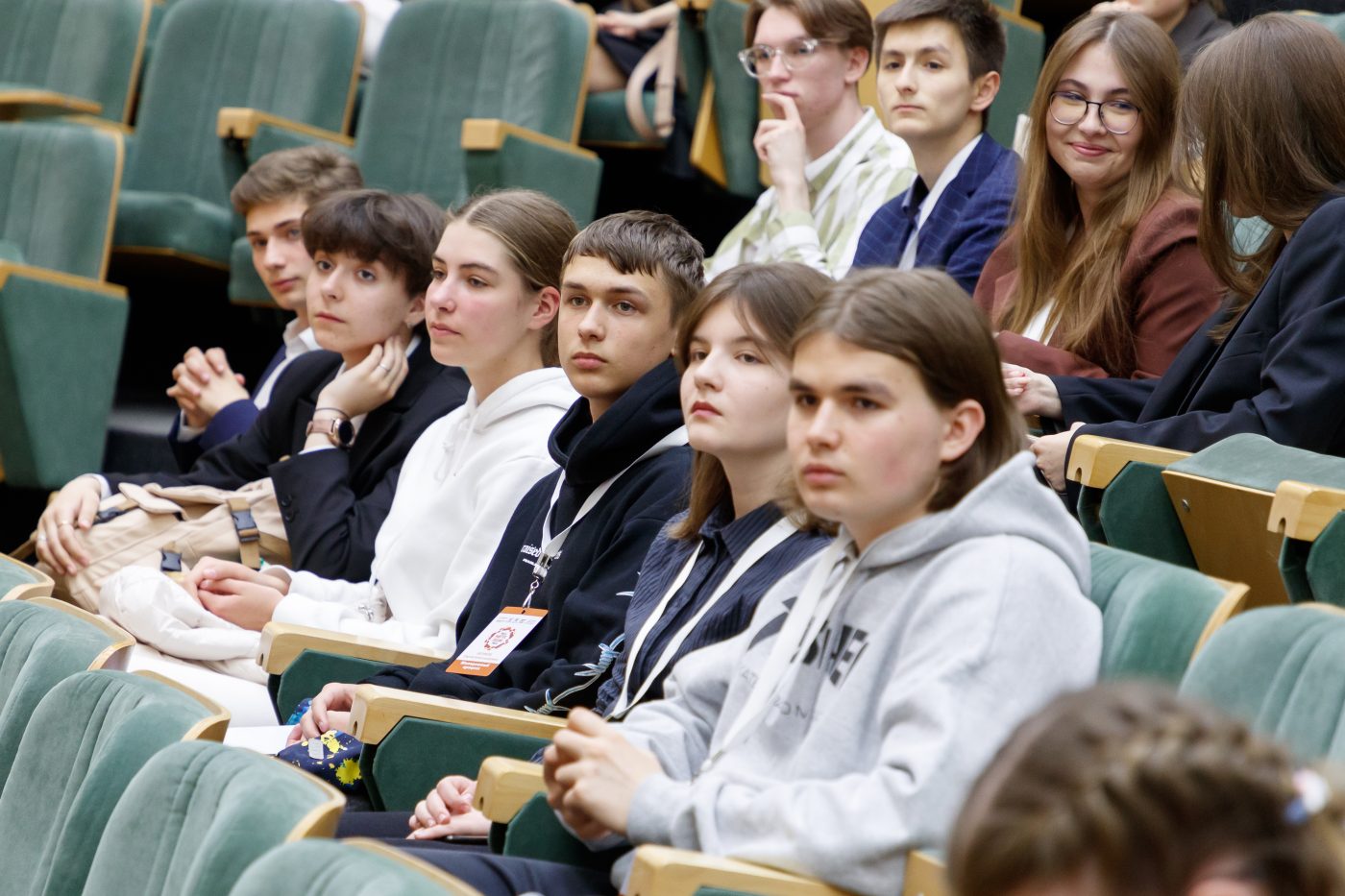Youth Water Council (YWC)

2024
The first World Youth Parliament for Water was established under the United Nations’ auspices in 2002 to coincide with the Year of Freshwater. Up until recently, Russian youths were part of the European Youth Parliament for Waterl. In 2024, an independent structure was established in Russia – the Youth Water Council.
The Youth Water Council (hereinafter referred to as the YWC) is an association of students, young scientists, and novice specialists aged 16 to 35 from different regions of Russia, which aims to increase interest among young people in the water agenda and professions of the water sector.
Regulations on the Youth Water Council
Tasks of the Youth Water Council:
- Raising young people’s knowledge on water issues, water policy, and water diplomacy.
- Familiarizing young people with the existing mechanisms of civil society development to promote sustainable water resource management and fulfill international obligations regarding water issues.
- Assisting in developing young people’s positions on water management issues and representing these positions in interactions with the government, business and society.
- Increasing environmental awareness and social responsibility among the population.
Areas of activity of the Youth Water Council:
- Analytical direction – Developing a Youth Water Strategy for the period up to 2035; formulating proposals to improve the existing legislative framework in the field of water resources management; conducting analytical studies on the thematic areas of the YWC.
- Enlightenment direction – Increasing environmental culture and awareness among the population; popularizing National Development Goals, UN Sustainable Development Goals, the role of the water agenda in the 21st century, and professions in the water sector.
- Applied direction – Launching and implementing projects in the field of water treatment, water conservation, and sanitation, as well as other applied initiatives and field research in the thematic areas of the YWC.
- Representative direction – Forming and presenting the position of Russian youth on water resources management; representing youth at national and international thematic events; creating regional hubs.
Structure of the Youth Water Council
The Youth Water Council is represented by individuals who have applied to join the YWC and have passed the initial selection.
YWC has a Presidium and five working groups.
The Presidium of the YWC is an elected body that performs representative functions. It is responsible for coordinating the work of the YWC’s working groups in their respective areas of activity.
The Presidium consists of a Chairman and 5 to 10 coordinators, with 1-2 coordinators per working group.
The first 10-member Presidium was elected by participants of YWC on June 20, 2024, at the eighth All-Russian Water Congress.
Youth Water Council has five Working Groups on
- Enlightenment – Develops projects and analytical materials to raise public awareness about the problems of the water sector and the rules for the sustainable use of water resources.
- Analytics – Prepares proposals for existing legal acts and their drafts regulating the sphere of water relations; develops analytical materials in the field of YWC activities.
- Best Practices – Studies the best Russian and foreign projects on environmental education, sustainable water supply, conservation of aquatic ecosystems, and other areas.
- Media – Promotes YWC on social networks and other relevant platforms; covers YWC projects; develops website design and information materials.
- Regional involvment – Integrates new participants into the activities of the YWC; establishes contacts with the regions and nations; develops a network of regional YWC hubs-
- Other topics – may be formed within the YWC.
Work format: remote (online) format + events with in-person participation.
The creation of the Youth Water Council marks a new stage in the development of the water agenda in Russia, attracts the attention of young people, and becomes a tool to increase the prestige of the water sector.

